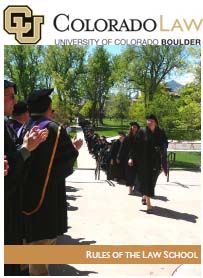Event Summary
Held annually, the╠řInterdisciplinary Ethics Tech Competition gives students a chance to wrestle╠řwith a real-world ethics╠řproblem╠řin collaboration with a diverse team of students studying╠řlaw, business, communication, journalism, engineering, ITP, information science, or╠řcomputer science.╠ř Past case problems have featured╠řa tech company grappling with ethical obligations related to its facial expression recognition product, and an online platform's efforts to address the challenges presented by "fake news."
The competition provides students with the unique opportunity to work as part of an interdisciplinary team on a problem involving ethical, legal, business, technology, and privacy issues similar to what they are likely to encounter after graduation. This hands-on╠řlearning experience prepares students to collaborate╠řeffectively across disciplines in their careers, and positions students╠řto be ethical members of business management teams.
Who May╠řParticipate
The competition is open to graduate students at the University of Colorado Boulder studying any relevant discipline,╠řincluding law, business, communication, journalism, engineering, philosophy, ITP, information science, or╠řcomputer science.╠ř
Event Format
Participants are assigned to a team comprised of 3-5╠řstudents representing different areas of study to maximize the breadth╠řof each team's knowledge and expertise.
Teams are╠řgiven the case problem approximately two weeks before the competition date.╠ř ╠řIn the process of researching the problem╠řand preparing╠řa response, team members may meet as many times as they choose and may consult with outside professionals. Students prepare both a live presentation and╠řa short, written executive summary of their recommendations.
On the day of the competition, each team presents its╠řrecommendations to panels of judges who are selected for their expertise in the relevant╠řfields.
The five top-scoring teams from the initial rounds advance to╠řthe Finals Round, where the finalists give their presentations to a panel of judges, community members, and students in Wittemyer Courtroom. After the final╠řpresentations, a networking and awards luncheon is╠řheld for competition participants, where the winning teams are╠řannounced. Monetary prizes are awarded to the top three highest-scoring teams.
Please click╠řhere╠řfor a news article that provides a more detail description of the competition.╠ř
Highlights from the 2024╠řCompetition
The eighth annual╠řInterdisciplinary Ethics Tech Competition was held at Colorado Law on February 3, 2024. Nine teams comprised of students from a range of academic disciplines competed as hypothetical colleagues tasked with advising their company's executive management on how the company should implement artificial intelligence for performance management among the company's U.S. employees. Students identified key issues and risks - ethical, practical, legal, and business-related - associated with using breakthrough AI technology for HR purposes.╠ř╠ř
The three highest-scoring teams were as follows:
- 1st╠řPlace Team:╠řEmilee Calvin (Law); Catie╠řPursifull (Law);╠řSabrina Schatz (MENV); Sydney Zirbel (Business)
- 2nd Place Team: Sanam╠řAnalouei (Law); Seth Guldin (Business); Emmeline Nettles (International Affairs); Isaac Ogundare (Law); Macarena Villagomez-Tapia (Law)╠ř
- 3rd Place Team: Matthew Alexander (Law); Steve Herlihy (Law); Victor Laudano (Law); Jacob╠řWoodford (Law); Alden Zeff (Business)
Highlights from the 2023 Competition
In the 2023 competition, students collaborated to form a hypothetical task force testifying before a Congressional Committee to provide recommendations on how - if at all - the U.S. government should regulate deep fakes. They sought to answer the question: As viewers can no longer tell the difference between real and faked content, how do we draw the line to harness the beneficial aspects of this technology while protecting against harm?╠ř
The three highest-scoring teams were as follows:
- 1st Place: Shayan Abtahi (Law), Lucia Jayne (Computer Science), Yamineesh Kanaparthy (Business Analytics) and Sarah Sorenson (Law)
- 2nd Place: Mariah Bowman (Law), Sean Harms (Law), Conor Rowan (Aerospace Engineering)╠řand Britt Wirth (Law)╠ř╠ř
- 3rd Place: Xelef Botan (Law), Kailey Lauter (Law), Kylie Hunter (Engineering/Technology Cybersecurity and Policy)╠řand Colton Marschik (Business)╠ř ╠ř ╠ř
Highlights from the 2022 Competition
In the 2022 competition, nine teams of students submitted video presentations detailing their proposals for a technologically sound contact-tracing program that could be used in the next public health crisis to safeguard public health while respecting individual privacy and balancing business, ethical and legal interests. ╠ř
The three highest-scoring teams were as follows:
- 1st Place: Landon Glover (Law), Austin Hayes (Engineering), Garrett Janney (Law) and╠řZac Salinger (Business)
- 2nd Place:╠řMegan Bryan (Law), Isabelle Dean (Law), Austin McCleery (Law) and Grace Wilson (Engineering and╠řCreative Technology & Design) ╠ř
- 3rd Place:╠ř╠řNeill Shikada (Creative Technology & Design), Paul Stevenson (Law) and Diego Villareal (Law)╠ř╠ř╠ř ╠ř
Thank you to all of our participants and volunteer judges!
╠ř
╠ř ╠ř ╠ř ╠ř ╠ř ╠ř ╠ř ╠ř ╠ř ╠ř ╠ř ╠ř ╠ř ╠ř ╠ř ╠ř ╠ř ╠ř ╠ř ╠ř ╠ř ╠ř ╠ř ╠ř ╠ř ╠ř ╠ř ╠ř ╠ř ╠ř ╠ř ╠ř ╠ř
The Interdisciplinary Ethics Tech Competition is co-hosted by the Daniels Fund Ethics Initiative Collegiate Program at Colorado Law, the Collegiate Program at the Leeds School of Business, and the Silicon Flatirons Center for Law, Technology, and Entrepreneurship, in partnership with:
- Department of Computer Science
- Technology, Cybersecurity and Policy (TCP) Program
- College of Engineering and Applied Science
- Department of Information Science








